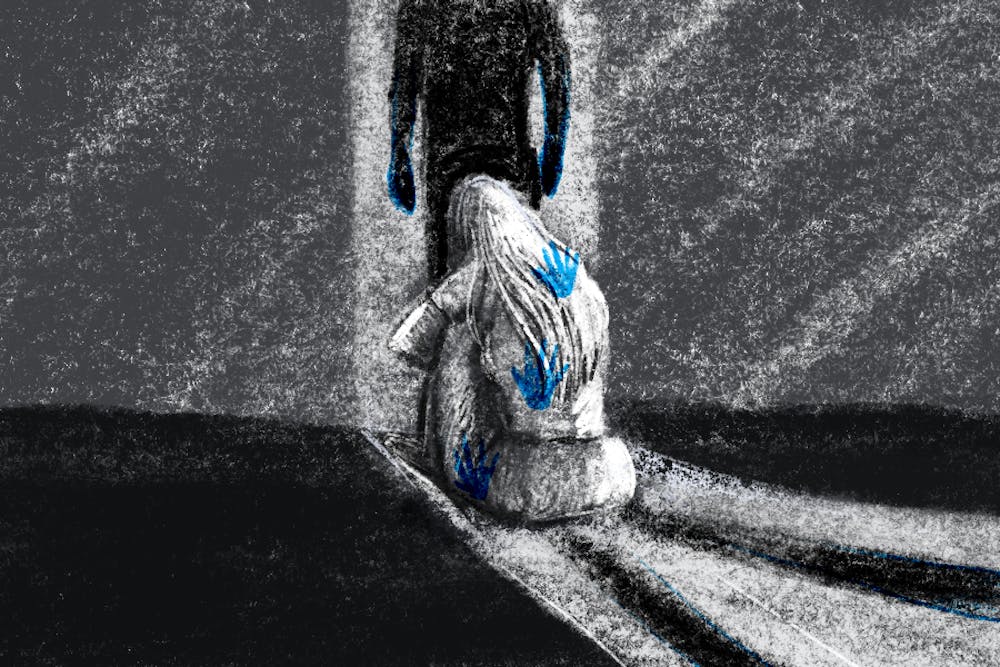
Often, people assume that you can willingly escape an abusive or violent relationship, but it’s never that simple. While you might be able to drop a toxic friendship, cutting off a romantic partner is neither easy nor straightforward. Especially if you are living with your partner during quarantine, it’s frankly impossible to physically distance yourself. Many people live with emotionally, physically, or sexually abusive partners, particularly during these trying times. This unhealthy relationship dynamic can take a tremendous toll on the long-term emotional, mental, and physical health of victims.
Intimate partner violence is rarely discussed, particularly among college students, but rape, physical violence, and stalking affect more than 35.6% of women and 28.5% of men during their lifetime. Many people believe it won’t happen to them, but the dismal reality is that no matter how tough or vigilant you are, these relationships are quite prevalent. Intimate partner violence can occur in any relationship, whether heterosexual or same-sex, married or unmarried, living together or apart. Moreover, research has highlighted how IPV occurs frequently in younger couples.
For those living with abusive partners, they’re not safe even in the supposed comfort of their own residence. For them, domestic violence is arguably a more daunting threat than the coronavirus itself, as their safety and health are greatly compromised in their own homes and relationships.
Before the pandemic, it was estimated that 1 in 4 women aged 18 or older in the U.S. experienced severe domestic violence, compared to 1 in 7 men. Approximately 41% of female survivors are physically injured due to domestic violence, and in 16% of homicide cases, the intimate partner was the culprit. Pandemic-induced stressors, including social isolation and quarantine practices, have exacerbated IPV, leading to a worldwide surge in intimate partner violence.
Contrary to popular belief, abuse isn’t always physical. It encompasses the emotional, mental, sexual, and physical realms. There are four main subtypes of IPV: physical violence, sexual violence, stalking, and psychological aggression. Many presume that IPV equates to physical and sexual aggression, but emotional and mental abuse is very much dangerous and violent, and can be just as horrifying to endure. Psychological abuse entails verbal or non-verbal communication with the intention of harming the person emotionally and mentally, and often includes attempts to exert complete control over that individual.
Common signs of domestic abuse include acts of physical violence, blatantly controlling behaviors, and more. Some lesser known signs include: public humiliation, pressuring or forcing non-consensual sexual acts, controlling outfits or other lifestyle habits, discouraging interaction with family and friends, blaming the victim for the perpetrator's violent outbursts, checking phone communications or social media accounts without permission, controlling how money is spent, and threatening to self-harm.
Unfortunately, many perpetrators and victims are themselves unaware or unfamiliar with the reality of domestic abuse and assault, which is why we must establish open dialogue on this matter. Not to mention, in approximately 33% of rape cases, the perpetrator is a current or former partner or spouse.
Further, many victims do not realize the severity of their situation until much later on. Especially if a partner is reassuring about his or her love, or perhaps occasionally affectionate and calm, it is often difficult to discern an abusive relationship from a normal one. There are evident, lasting effects on survivor's emotional and physical health from enduring domestic violence. Of course, IPV manifests itself in a myriad of ways, and many victims may not be aware of it if they aren’t experiencing clear physical or sexual abuse. If unstopped, signs of aggression may evolve to become more violent over time, eventually spiraling into physical or sexual abuse.
Pandemic or not, we must openly and frequently address intimate partner violence. Many assume that perpetrators of violence are strangers, but in actuality, they’re often the people we least expect — our loved ones.
Please remember that you are worthy of real love — but real love shouldn’t hurt you, only people do. Know that you are neither alone nor blameworthy. If you are a victim or survivor, or perhaps an ally calling on behalf of someone, you can reach The National Domestic Violence Hotline by calling 1-800-799-7233 or texting LOVEIS to 22522. It operates 24 hours, 7 days per week. This hotline is anonymous and confidential.

BRIDGET YU is a rising College junior from Los Angeles, CA studying Psychology. She plans to attend medical school and specialize in psychiatry. Her email address is bridgtyu@sas.upenn.edu.
Have opinions of your own you would like to share? Submit a guest column.
The Daily Pennsylvanian is an independent, student-run newspaper. Please consider making a donation to support the coverage that shapes the University. Your generosity ensures a future of strong journalism at Penn.
Donate







